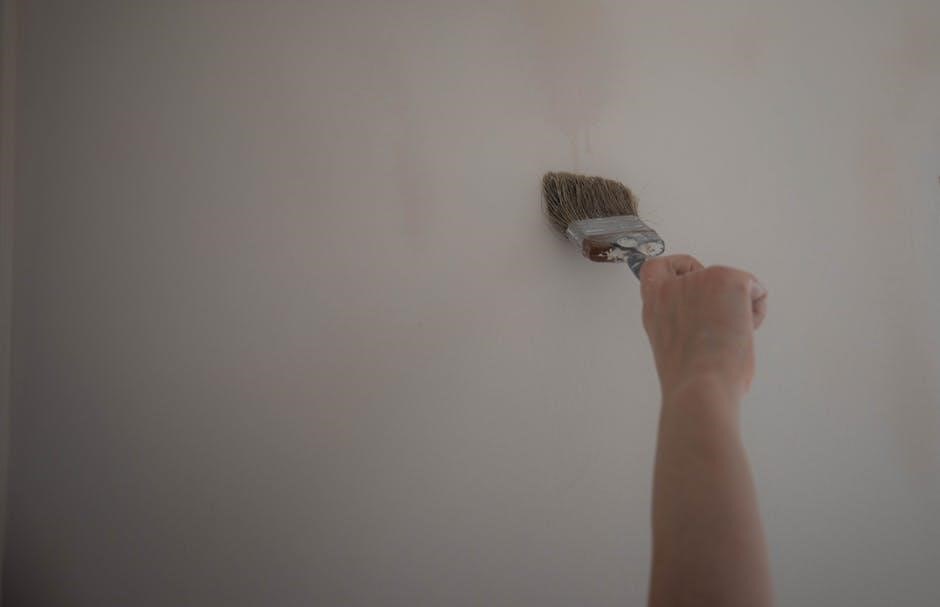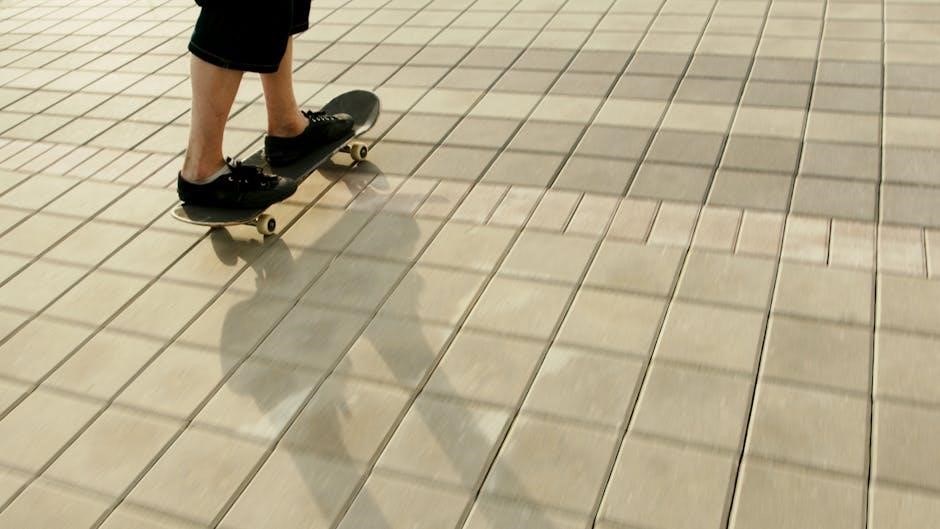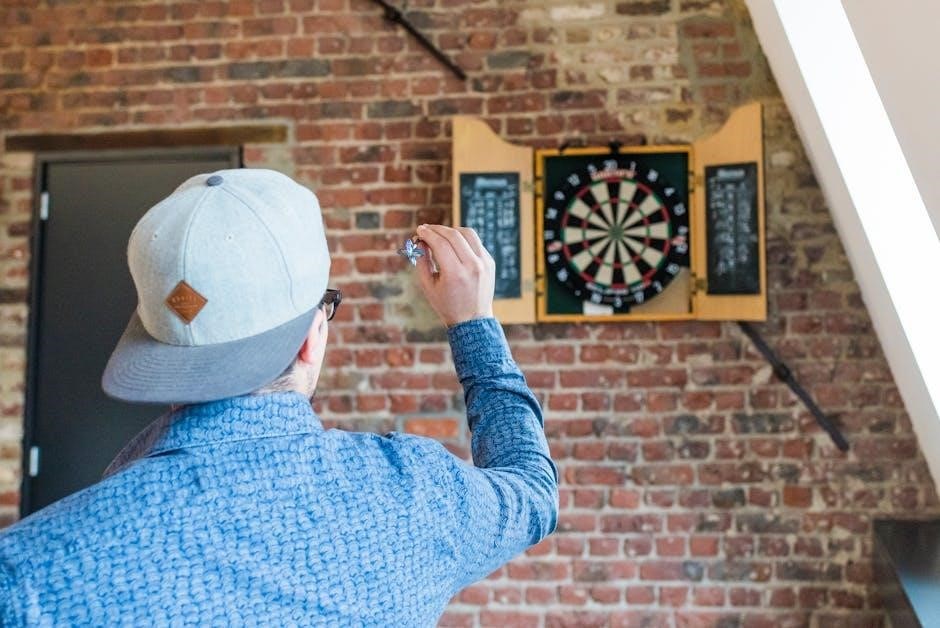The Indian Boarding Homes Class Action addresses harms faced by Indigenous children placed in non-Indigenous homes under Canada’s boarding program, offering compensation through a settlement agreement.
1.1 Overview of the Class Action
The Indian Boarding Homes Class Action seeks justice for Indigenous children placed in non-Indigenous homes under Canada’s boarding program. This lawsuit addresses the physical, emotional, and cultural harms caused by the program. A settlement agreement provides compensation to eligible individuals, with two categories of payments: one for general placement and another for abuse-related harms. The claims process, managed by a court-approved administrator, requires submitting application forms by the deadline of February 22, 2027.
1.2 Purpose and Scope
The purpose of the Indian Boarding Homes Class Action is to provide compensation for the harms endured by Indigenous children in the boarding program. Its scope includes addressing physical, emotional, and cultural damages. Eligible individuals can apply under two categories: Category 1 for placement in the program and Category 2 for abuse-related claims. The settlement aims to acknowledge past injustices and support healing within affected communities, ensuring a fair process for all eligible claimants.

Historical Context of Indian Boarding Homes
The Indian Boarding Homes Program, established in the 1970s, placed Indigenous children in non-Indigenous homes to assimilate them into Canadian society, causing cultural loss and trauma.
2.1 Origins and Establishment
The Indian Boarding Homes Program originated in the 1970s, evolving from earlier residential school policies. It aimed to assimilate Indigenous children by placing them in non-Indigenous homes. This initiative sought to erase cultural identities through forced integration. However, it resulted in significant cultural loss and trauma for many. The program’s legacy led to the class action lawsuit, addressing the harm and seeking compensation for survivors.
2.2 The Assimilation Policy
The Assimilation Policy aimed to integrate Indigenous children into mainstream culture by removing them from their families. This policy underpinned the Indian Boarding Homes Program, which placed children in non-Indigenous homes. The goal was cultural erasure, achieved through forced adoption of Western practices. Survivors experienced profound cultural loss and emotional trauma, leading to long-term impacts on communities. This policy is central to the class action lawsuit, addressing its harmful legacy.
2.3 The Indian Boarding Homes Program
The Indian Boarding Homes Program, established in the 1970s, placed Indigenous children in non-Indigenous foster homes. This program aimed to assimilate Indigenous children into Western culture by separating them from their families and communities. It caused significant cultural disruption and emotional trauma. Unlike residential schools, this program operated through private homes, but its impact was similarly harmful. Survivors experienced loss of identity and long-term psychological effects, leading to the class action lawsuit seeking justice and compensation.

The Class Action Lawsuit
The Indian Boarding Homes Class Action Lawsuit, filed in 2016, seeks justice for survivors of the program, addressing systemic harms and advocating for fair compensation and accountability.
3.1 What is a Class Action Lawsuit?
A class action lawsuit is a legal procedure where a group of individuals with similar grievances collectively sue a defendant. In the Indian Boarding Homes case, it allows survivors to seek compensation and accountability for the harms they endured. This approach streamlines the legal process, ensuring efficiency and fairness for all claimants. It is a powerful tool for addressing systemic injustices and securing justice for large groups affected by similar policies or actions.
3.2 Legal Claims Against the Government
The class action alleges that Canada’s creation and operation of the Indian Boarding Homes Program were wrongful, causing physical, emotional, and cultural harms to Indigenous children. Claims focus on the government’s failure to protect children from abuse and neglect, and its role in erasing Indigenous culture and language. Survivors seek compensation for these injustices, with claims addressing systemic negligence and the long-term impacts of forced assimilation policies. This legal action holds the government accountable for its historical actions.
Eligibility Criteria for Compensation
Eligibility requires being placed in a non-Indigenous home under the Indian Boarding Homes Program, with compensation categories based on placement and abuse experienced, and application by February 22, 2027.
4.1 Who Can Apply?
Individuals who were placed in non-Indigenous homes under the Indian Boarding Homes Program are eligible to apply. This includes Indigenous children who were separated from their families and communities, experiencing cultural loss and emotional harm. Survivors must submit a claim form by the deadline of February 22, 2027, to receive compensation for their experiences. Legal assistance is available to help navigate the application process and ensure eligibility requirements are met accurately.
4.2 Categories of Compensation
The compensation is divided into two categories. Category 1 provides a one-time payment of $10,000 for those placed in the program. Category 2 offers additional compensation, ranging from $10,000 to $200,000, for individuals who experienced physical or sexual abuse. Applicants can submit claims for both categories simultaneously or separately, ensuring fair recognition of their unique hardships and harm endured during their time in the boarding homes.
The Application Process
The application process involves obtaining the form online or by phone, submitting it via mail or online by February 22, 2027. Assistance is available through the help line.
5.1 Obtaining the Application Form
The application form for the Indian Boarding Homes Class Action is available on the official website at https://boardinghomesclassaction.com. Claimants can also request a form by calling the Claims Administrator at 1-888-499-1144. Additionally, forms can be downloaded as a PDF or obtained by mail at 18 York Street, Suite 2500, Toronto, Ontario, Canada M5J 0B2; The online claim portal provides a convenient option for submission, ensuring accessibility for all eligible participants.
5.2 Required Documentation
To complete the application, claimants must provide documentation verifying their participation in the Indian Boarding Homes Program. This includes proof of identity, such as a birth certificate or status card, and records confirming placement in a boarding home. Additional documentation, like letters from community leaders or historical records, may be required to support claims of harm or abuse. For Category 2 claims, evidence of physical, emotional, or sexual abuse is necessary. Visit the official website or contact the Claims Administrator for detailed requirements.
5.3 Submission Methods and Deadlines
Applications for the Indian Boarding Homes Class Action must be submitted by the deadline of February 22, 2027. Claimants can submit their forms online through the official claims portal or by mail to the address: Attn: Indian Boarding Homes Class Action, 18 York Street, Suite 2500, Toronto, Ontario, Canada M5J 0B2. Forms can also be faxed to 1-833-912-5047 or emailed to the Claims Administrator. Ensure all required documentation is included to avoid delays in processing.

Support and Resources for Applicants
Applicants can access support through a dedicated helpline, legal advice, and organizations offering guarantor services to assist with their claims process and documentation.
6.1 Contact Information for Assistance
Applicants can contact the Claims Administrator at 1-888-499-1144 for assistance with their applications. Legal support is available through Klein Lawyers LLP at 1-604-874-7171. The website https://boardinghomesclassaction.com provides forms and updates. For mail inquiries, send to Indian Boarding Homes Class Action, 18 York Street, Suite 2500, Toronto, Ontario, Canada M5J 0B2. Email inquiries can be directed to the class counsel for further guidance.
6.2 Legal Counsel and Support Services
Legal counsel is available through Klein Lawyers LLP, who act as class counsel for the Indian Boarding Homes Class Action. They provide legal advice and assistance with completing claim forms. Applicants can contact them at 1-604-874-7171. Additional support services include guidance from the Claims Administrator, who can be reached at 1-888-499-1144. These resources ensure applicants receive the necessary support to navigate the claims process effectively and access the compensation they are entitled to under the settlement agreement.
Key Dates and Deadlines
Key dates include the application deadline of February 22, 2027. Stay informed by visiting the official website for the latest updates and timelines.
7.1 Important Timelines
The claims process opened on August 21, 2024, following court approval of the settlement. The deadline for submitting applications is February 22, 2027. Additionally, the opt-out deadline was set for November 22, 2024, allowing individuals to exclude themselves from the class action. These timelines are crucial to ensure all eligible individuals can participate and receive compensation fairly. Missing these deadlines may result in ineligibility for benefits under the settlement agreement.
7.2 Settlement Approval Hearing Dates
The settlement approval hearing was held on May 21, 2024, marking a critical milestone in the class action process. This hearing allowed the court to review and approve the proposed settlement terms, ensuring fairness and adequacy for all claimants. Following approval, the claims process officially commenced, enabling eligible individuals to seek compensation for the harms experienced in Indian Boarding Homes. This hearing was a pivotal step toward justice and reconciliation for Indigenous communities.
The Settlement Agreement
The Indian Boarding Homes Class Action settlement was approved in August 2024, establishing a $1.9 billion compensation fund for Indigenous individuals placed in these homes, addressing past harms and fostering reconciliation.
8.1 Settlement Amount and Details
The settlement agreement allocates $1.9 billion to compensate Indigenous individuals placed in boarding homes. The fund covers two categories: Category 1 for placement-related harms and Category 2 for abuse, ranging from $10,000 to $200,000. Eligible claimants must submit applications by February 22, 2027, to receive compensation, addressing the historical injustices faced under the program.
8.2 Government’s Role and Commitment
The Canadian government acknowledged the historical injustices of the Indian Boarding Homes Program and committed to reconciliation. They agreed to a $1.9 billion settlement, demonstrating accountability for past harms. The government supports the claims process, ensuring fair compensation distribution. Implementation began in August 2024, reflecting their dedication to addressing the suffering of Indigenous communities and fostering healing through concrete actions and financial restitution.

Addressing the Harms
The Indian Boarding Homes Class Action addresses physical, emotional, and cultural harms. It offers compensation for suffering, aiding survivors’ healing and justice through defined payment categories.
9.1 Physical and Emotional Harms
The Indian Boarding Homes Program caused significant physical and emotional suffering for Indigenous children. Many endured abuse, harassment, and neglect, leading to long-term mental health issues. The forced separation from families and communities disrupted cultural identity and language preservation. Survivors experienced trauma, loss of heritage, and intergenerational pain. The class action acknowledges these harms, providing compensation to address the profound impact on individuals and their families, fostering a path toward healing and reconciliation.
9.2 Cultural and Community Impacts
The Indian Boarding Homes Program severely impacted Indigenous cultural and community ties. Children were forcibly assimilated, losing their language, traditions, and connection to heritage. This disruption weakened community structures and cultural continuity. The class action recognizes these broader societal effects, aiming to support healing and revitalization of Indigenous cultures through compensation and reconciliation efforts, acknowledging the lasting damage to communities and their way of life.
9.3 Path to Healing and Reconciliation
The Indian Boarding Homes Class Action aims to facilitate healing and reconciliation by acknowledging past injustices. Compensation provides tangible recognition of suffering, while official apologies and support services promote emotional healing. The settlement encourages Indigenous communities to rebuild cultural ties and revitalize traditions. This process fosters reconciliation by addressing historical harms and supporting survivors in their journey toward wholeness, ensuring a pathway to justice and collective healing for affected individuals and communities.
Receiving Payment
Payments are distributed after the Federal Court approves the settlement. Applicants must submit completed forms by February 22, 2027. The Claims Administrator reviews and processes payments.
10.1 Submitting Applications
Applications for compensation must be submitted by February 22, 2027. Claimants can file online through the official portal or mail completed forms to the Claims Administrator. Category 1 and Category 2 claims require separate forms, and applicants must provide detailed documentation. The Claims Administrator reviews submissions to ensure eligibility and completeness. For assistance, applicants can contact the help line at 1-888-499-1144 or seek legal counsel. Timely submission is crucial to receive compensation under the settlement agreement.
10.2 Distribution of Compensation
Compensation is distributed based on validated claims, with Category 1 payments serving as a base amount for all eligible applicants. Category 2 payments address specific harms, such as abuse, with amounts ranging up to $200,000. The Claims Administrator oversees the distribution, ensuring payments align with settlement terms. Payments are issued after the claims review process, with the deadline for submissions set at February 22, 2027. Final payments are expected to be made following the approval of all valid claims by the court.

Opting Out of the Settlement
Opting out allows individuals to pursue separate legal action. A PDF Opt-Out form is available on the official website or by contacting the Claims Administrator. Deadline: February 22, 2027.
11.1 How to Opt-Out
To opt out, complete the PDF Opt-Out form available on the official website or request it by calling the Claims Administrator at 1-888-499-1144. Submit the form by email or mail to Class Counsel at Klein Lawyers LLP. The deadline to opt out is February 22, 2027. Opting out allows individuals to pursue separate legal action outside the settlement.
11.2 Implications of Opting Out
Opting out excludes individuals from receiving compensation under the settlement. They cannot benefit from any future payments related to the class action. However, it allows pursuing independent legal claims against Canada, potentially seeking individual remedies. Those opting out must file a separate lawsuit, bearing legal costs and uncertainties. It is crucial to consult legal counsel before making this decision to understand the risks and potential outcomes of pursuing individual action.
Role of Legal Counsel
Legal counsel provides essential guidance and representation, ensuring applicants understand their rights and options. They assist with claim submissions, opt-out decisions, and navigating the legal process effectively.
12.1 Importance of Legal Representation
Legal representation is crucial for navigating the complexities of the Indian Boarding Homes Class Action. Lawyers provide guidance on eligibility, claim submission, and understanding rights. They ensure applicants complete forms accurately and meet deadlines. Legal counsel also assists with opt-out decisions and advocates for fair compensation. Their expertise helps applicants avoid mistakes and maximize their chances of receiving the benefits they deserve. Having legal support ensures a smoother process and better outcomes for those seeking justice and reconciliation.
12.2 Finding Legal Assistance
Legal assistance is readily available for those involved in the Indian Boarding Homes Class Action. Applicants can contact firms like Klein Lawyers LLP or reach out to the Claims Administrator for guidance. The Claims Administrator can be contacted at 1-888-499-1144 or via the official website. Legal support ensures applicants understand their rights, complete forms accurately, and meet deadlines. This assistance is vital for navigating the claims process and making informed decisions, including opting out if desired.
Guarantor Services
Guarantor services support applicants in the Indian Boarding Homes Class Action, ensuring proper documentation and representation. Organizations like NAN may act as guarantors, aiding in the claims process.
13.1 Organizations Acting as Guarantors
Organizations like the Nishnawbe Aski Nation (NAN) act as guarantors for applicants in the Indian Boarding Homes Class Action. These groups provide professional designation support, aiding claimants in navigating the legal process. They ensure applications are complete and properly documented, reducing barriers for Indigenous communities. Guarantors also offer guidance on legal representation, helping applicants access necessary resources and services. Their role is crucial in facilitating a smooth claims process for those seeking compensation under the settlement agreement.
13.2 Benefits of Guarantor Support
Guarantor support simplifies the application process for claimants in the Indian Boarding Homes Class Action. It provides access to professional guidance, ensuring forms are accurately completed and deadlines are met. Additionally, guarantors assist in verifying documentation, reducing the risk of errors that could delay compensation. This support also connects applicants with legal resources, fostering confidence and understanding throughout the claims process, ultimately aiding in the fair distribution of settlement funds to eligible individuals.
Impact and Significance
The Indian Boarding Homes Class Action has profound implications for Indigenous communities, addressing historical injustices and fostering reconciliation. It acknowledges the suffering endured and promotes healing.
14.1 Impact on Indigenous Communities
The Indian Boarding Homes Class Action provides compensation and acknowledgment of suffering, fostering healing within Indigenous communities. It supports cultural revitalization and language preservation, empowering communities to rebuild their identities and strengthen intergenerational connections. The settlement underscores Canada’s responsibility for past harms, promoting reconciliation and equity for Indigenous peoples affected by the boarding home program.
14.2 Significance in Indigenous Rights
The Indian Boarding Homes Class Action marks a pivotal step in advancing Indigenous rights by addressing historical injustices. It sets a precedent for accountability, acknowledging the trauma inflicted through forced assimilation. The settlement validates Indigenous voices, emphasizing the importance of preserving cultural identity and language. This action aligns with broader reconciliation efforts, reinforcing the rights of Indigenous peoples to justice, equity, and self-determination, while fostering a pathway toward healing and systemic change.
The Indian Boarding Homes Class Action settlement signifies a crucial step toward reconciliation, validating survivors’ experiences and providing compensation for historical injustices, fostering healing and justice for Indigenous communities.
15.1 Final Thoughts
The Indian Boarding Homes Class Action settlement marks a significant step toward justice and healing for Indigenous survivors. It acknowledges the profound harms caused by the boarding home program and provides a pathway for compensation. Survivors are encouraged to apply for the benefits they deserve, with support available throughout the process. This settlement is a crucial acknowledgment of past wrongs and a commitment to reconciliation, offering hope for a more equitable future.
15.2 Encouragement to Apply
Applicants are urged to participate in the Indian Boarding Homes Class Action to seek rightful compensation for past harms. The settlement provides a pathway to justice and healing, offering financial support for those affected. With accessible resources and guidance, survivors can confidently navigate the application process. Don’t miss this opportunity to claim the benefits you deserve—submit your application by the deadline to ensure your voice is heard and your experiences acknowledged.
